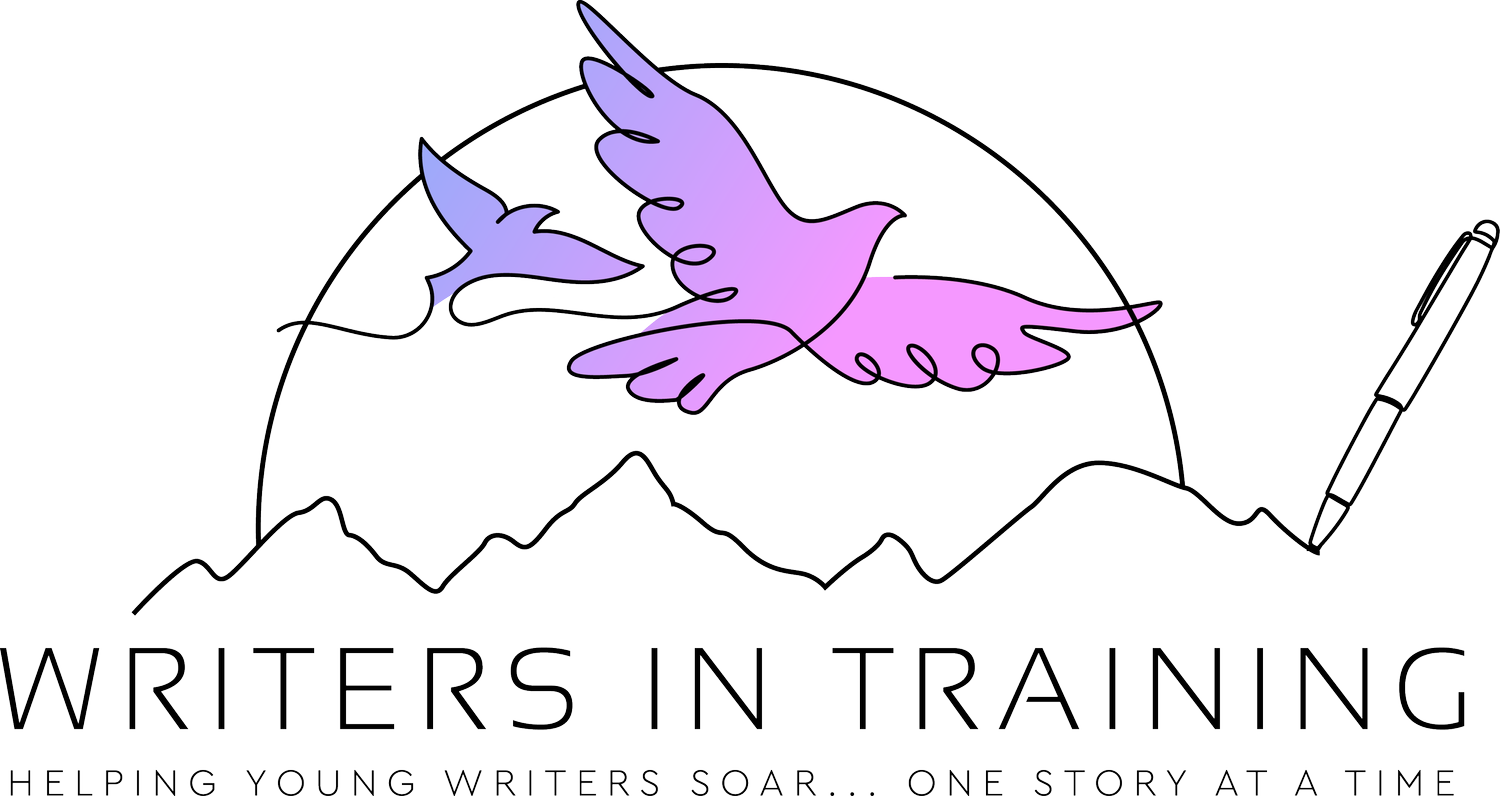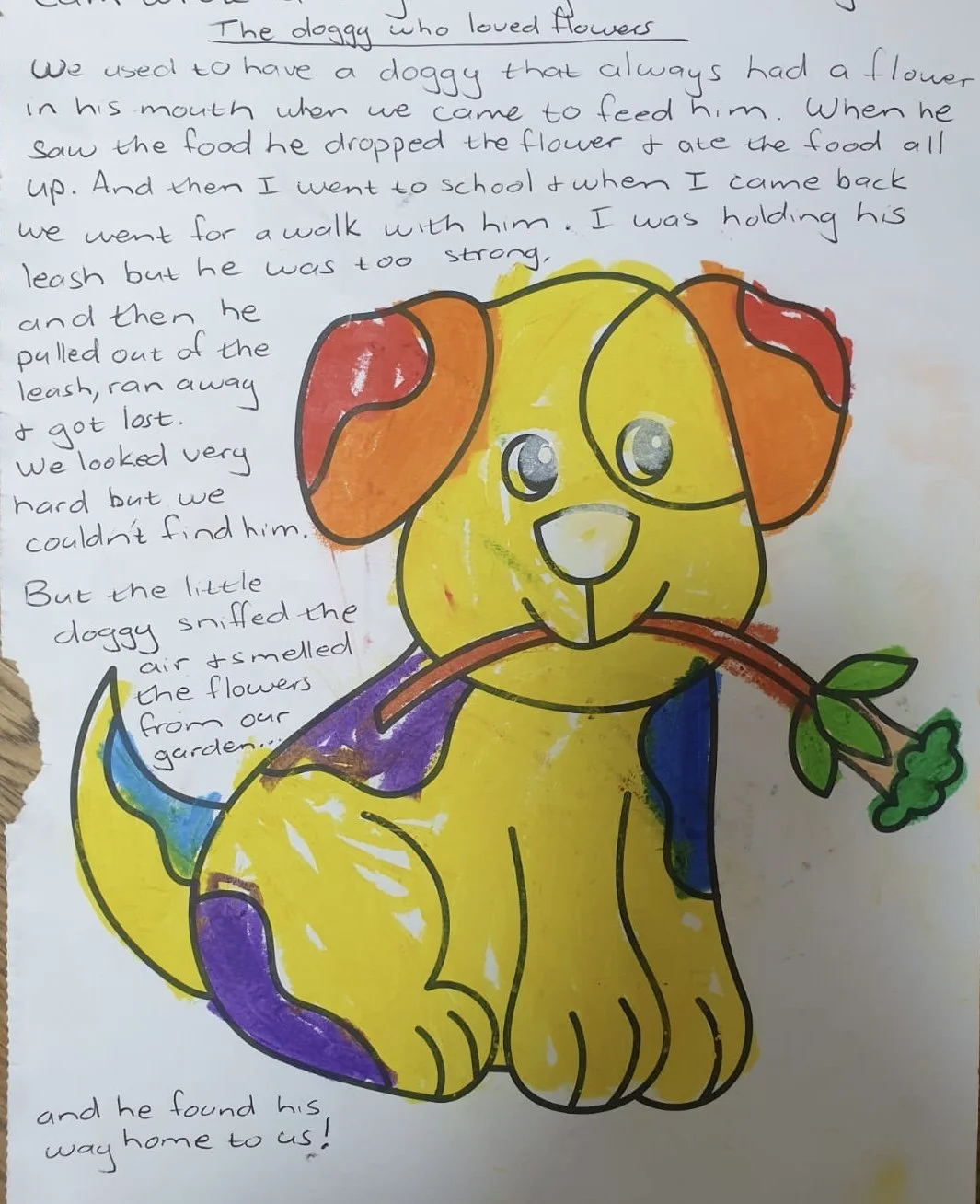We All Have a Story to Tell
Everyone has a story to tell. When our friend’s son was in that stage between babbling and being able to form words, he had so many stories to tell. Never mind that his lips could not shape the ideas he was eager to share. He told story after story. No one was entirely sure what each story was about, but if you listened carefully, you might catch a word or two to give you a clue, such as “key,” “bath”, and “Jonesy” (his brother’s nickname), among others. And while the plot was unclear, his enthusiasm and determination to share were undeniable!
Stories help us learn, remember facts, synthesize information, develop empathy, build community, and are foundational to what sets humans apart from other animals. Stories are written in our DNA. Human beings have a deeply rooted desire to know and to be known, and when it comes to stories, age does not matter. We all have stories to share.
Another little one recently wrote his first story. He doesn’t yet know how to write a sentence or print all his letters perfectly. However, he is already a storyteller. Here is his story, as transcribed by his mom.
The Doggy Who Loved Flowers
The Doggy Who Loved Flowers
We used to have a doggy who always had a flower in his mouth when we came to feed him. When he saw the food he dropped the flower and ate the food all up. And then I went to school and when I came back we went for a walk with him. I was holding his leash but he was too strong and then he pulled out of the leash, ran away, and got lost. We looked very hard but we couldn’t find him. But the little doggy sniffed the air and smelled the flowers from our garden…and he found his way home to us!
Here is a four-year-old with a story to tell! It is a problem-solution-style story with a beginning, a middle, and an end. He sets the scene and then solves the problem using details he included in the setup. The solution to the problem ties back to the beginning of the story. The details are wrapped up in a satisfying ending.
If you encourage young writers in your home or classroom, make space for them to tell stories out loud. Oral storytelling is an essential learning step towards writing our stories in words. It is often overlooked as a learning strategy, but we develop many essential writing skills whenever we share our ideas aloud.
What does oral storytelling teach young writers?
It develops self-confidence. Sharing ideas with a listening audience creates a safe place where children learn their ideas are valuable and worth sharing.
It helps one learn to “read the room.” As we share, we watch how the audience responds. Children learn to recognize if their audience is entertained even at a very young age. They will adjust their story to maintain waning interest.
It teaches how to answer and ask questions about a specific topic. Adults often ask clarifying questions of child storytellers, modelling how to clarify thoughts and tie up loose ends.
It connects us to others. We learn to relate to similar stories, connecting to our own experiences, which develops empathy and curiosity. We learn to ask clarifying questions. We develop the self-discipline to participate in a two-way discussion.
It builds oral vocabulary, which is the foundation of written vocabulary.
It helps us develop our unique writer’s voice. When we tell stories, we speak with expression. We change our pace and volume to emphasize key points. We speak in a variety of sentence lengths and styles to keep our listeners engaged.
Good storytellers become great storywriters.
A good storyteller learns how to grab a listener’s attention. They realize the amount of detail included in a story matters. Too little detail and the listener won’t follow the storyline; too much unnecessary detail and they tire of listening. Good storytellers learn to tell the type of story their audience appreciates. They use unique words, carefully chosen to describe characters, objects, and settings. They alter the tone and pace of their storytelling to ensure their listeners understand their message. They learn to spin tales full of action because that’s what moves a story forward toward its satisfying ending.
A good storyteller recognizes they can use their words to make people smile, laugh, cry, question, and think deeply. They begin to understand that their words can be agents of change in a world full of people genetically wired to communicate through stories.
These are the basic skills every good writer needs, and their development starts with speaking our unique stories aloud.
Is it ever too early to encourage a young writer? I don’t believe so.
We are designed to communicate.
We are driven by story.
And we all have a story to tell.


